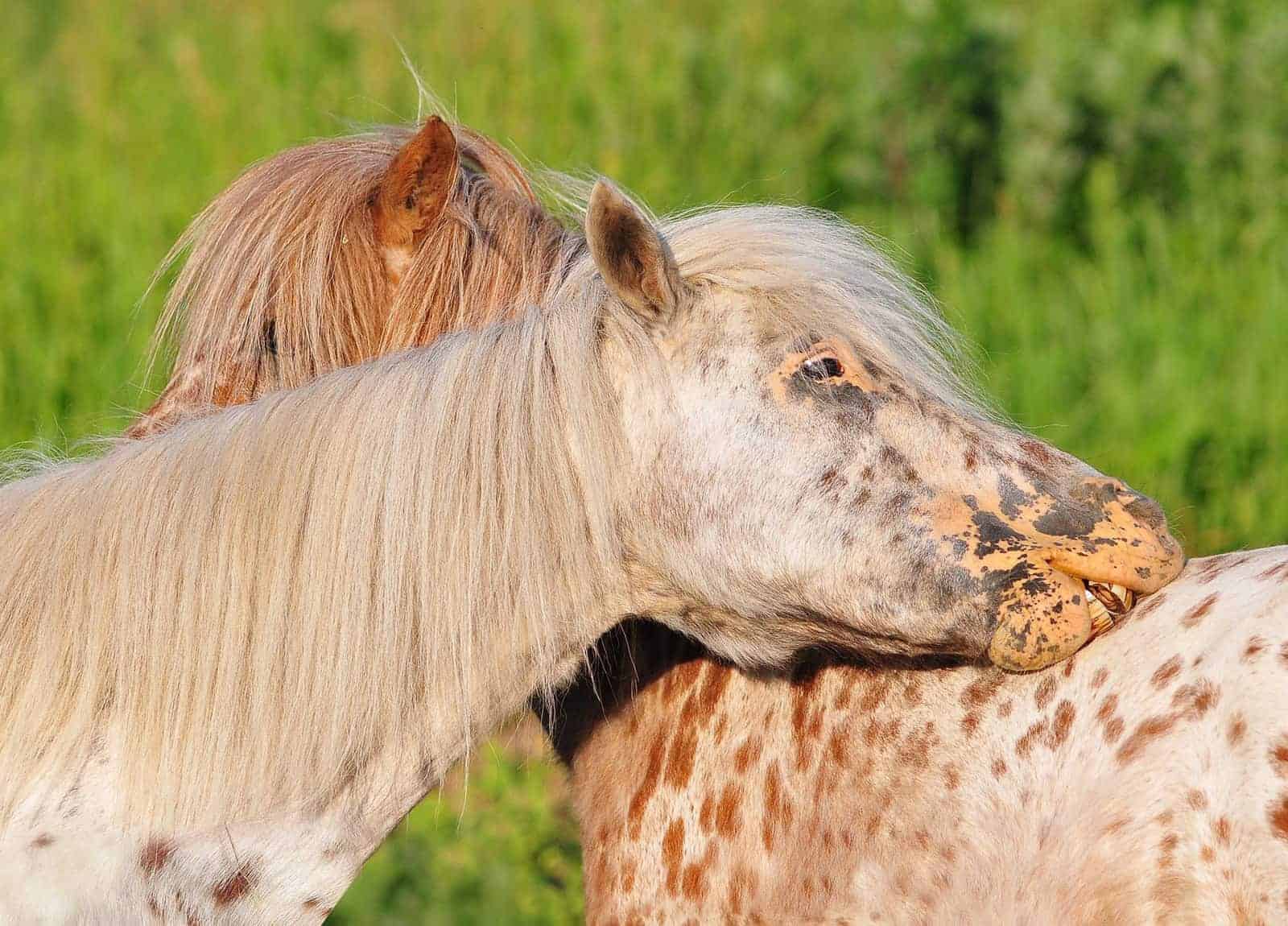Sunburn Solutions

Q. My neighbor/best friend has a major problem with sunburn on her Appaloosa mare. She is basically a black mare with spots on her rump, but not on a true blanket, as such, yet her sunburn is really nasty. It is pink and inflamed, and we have not really been able to find anything that would help it. What do you recommend to help it heal? She is now in a pen that is completely roofed, rather than out on the pasture, but we need to get this healed. — Deby Zimmerman, Boone, Colo.
A. I’m sure everyone has great sympathy for your neighbor’s horse since they have probably suffered from sunburn and its consequences! It is typically painful and causes blisters, which then lead to dry and cracked skin with hair loss. All light-colored horses, and those with white markings, have the potential to develop sunburn when the skin is exposed to light. This can include breeds such as Appaloosas, Paints, and Pintos.
Photodynamic agents are responsible for transferring energy from the light into body cells, causing damage. These can include a variety of pharmaceutical agents (such as tetracyclines) and plants (St. John’s Wort, buckwheat, and perennial rye-grass). Alfalfa or clover might induce similar symptoms. Plants containing pyrrolizidine alkaloids (ragwort, tarweed, rattle-weed, and salvation jane) might cause photosensitivity in horses with liver disease
Create a free account with TheHorse.com to view this content.
TheHorse.com is home to thousands of free articles about horse health care. In order to access some of our exclusive free content, you must be signed into TheHorse.com.
Start your free account today!
Already have an account?
and continue reading.
Written by:
Montague N. Saulez, BVSc, MRCVS, MS, PhD, Dipl. ACVIM
Related Articles
Stay on top of the most recent Horse Health news with











